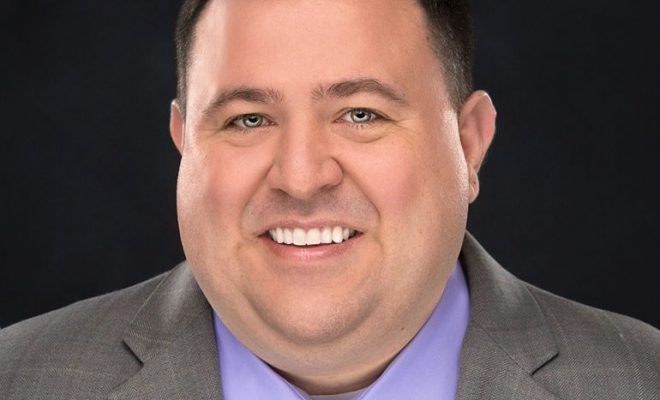City administrator addresses legal fees and budget concerns

By Lori Adler
Reporter
At the Oct. 14 city council meeting, city administrator Daniel Guild put forth a resolution to allow for the payment of outstanding legal fees. The fees, totaling close to $200,000, have remain unpaid due to council inaction. This has been due to mainly a concern that the amount originally budgeted for legal fees for 2019 has already been exceeded.
The resolution did not specify exactly where the fees would fall in the budget, leaving that determination to Guild and finance director Wendy Bixby. It did, however, show several options that would fall within the budget. The resolution was prepared in this way, according to Guild, in order to facilitate the paying of these bills in a timelier manner since many are now considered past due, at more than 120 days.
The resolution created discourse among council members, and though the measures described in the resolution were deemed acceptable by city attorney Steven Sorenson, it was ultimately defeated. It didn’t end there, however, as the conversation has continued among council members and the general public on various Facebook pages.
One citizen comment posted on the Star Journal Facebook page stated, “It seems inappropriate that none of these bills are being paid. It seems inappropriate that no one is putting forward any reasonable method for paying expenses that were incurred with the full knowledge and consent of the entire city council, while rejecting methods which the current city attorney has advised would be reasonable.”
Alderperson Dawn Rog posted this to her Facebook page, “The city is facing a budget problem approaching hundreds of thousands of dollars in legal bills. State statues limit the city’s options on how to pay these.”
Rog also included a chart of accounts to demonstrate the deficit as she sees it, explaining that items cannot be added on top of an existing budgeted amount for a department but rather must fall within the totals for each department.
Guild said, however, that the resolution did not propose adding to a department, but instead making use of excesses within some of the departments. As many of the legal fees are related to personnel issues, Guild and Bixby planned to move some of the expenses to the departments where the various personnel worked. Guild said that, since Jan. 1, the city is down 10 full-time employees. The money for the salaries and benefits of these employees had already been budgeted in 2019 and is therefore in each department’s fund. These excess monies could be used to absorb the legal fees related to that department.
“There are members of the common council that have a significant and persistent lack of understanding about how municipal budgeting works,” Guild said. “For example, we have council members that believe that the city does line-item budgeting. And we really truthfully budget at the department level, and most of the departments are fit into larger categories that are prescribed by state statute and the uniform chart of accounts, which are policies and procedures for the management of local government finances that are determined by the state of Wisconsin, that allows money to be moved within an area, within a department without necessarily changing the budget.”
Why legal fees are higher this year
One legal budget item discussed by council members and the public alike is the difference between the salaries for city attorneys. City attorney Steven Sorenson, part of the von Briesen law firm, receives $275 per hour for his work for the city, an amount that is considerably more than what former city attorney Carrie Miljevich was receiving. Guild said that the decision to select von Briesen was based upon a number of factors, including the fact that von Briesen has a team of attorneys to help with any special cases as well as the idea that von Briesen has a long-standing relationship with the city. In addition, Sorenson comes to the city with experience in municipal law. According the Guild, the city is paying more for legal services but is getting more in return.
Another issue is the backlog of legal issues that have never been addressed. Guild and Mayor Chris Frederickson have been reviewing legal documents and contracts in an effort to resolve some of these concerns.
“There are a lot of issues that rather than address, former leadership on the common council has swept those issues under the rug, and you could make the argument that they were doing it for the good of the community as addressing those issues would require spending money,” Guild said, later adding, “This has also incurred some additional expense, but the city should know that we are taking care of issues that have been festering for years.”
Explaining that legal expenses are generally anticipated and therefore placed in the budget ahead of time, Guild admits there have been unforeseeable issues this year that are incurring a large amount of legal expense. Over the past nine months, the city has received over 200 open records requests. So many have been received, in fact, that the city clerk is no longer able to handle them. Instead a member of the von Briesen team has been assigned specifically to deal with the requests. Guild states, for example, that a recent request involves records on every current city employee as well as some that no longer work for the city. These requests involve first sending the files to each employee so they are aware of what information is being released. Then an attorney must go through each record, redacting sensitive information such as health records. According to Guild, it is anticipated that this one record request alone will incur anywhere from 80-160 attorney hours.
“There is one media outlet that is the predominant filer of these requests, but the media is not, in and of itself, the sole group facilitating these unpredictable nuisance records requests,” Guild said. “We also have a select group of people on the common council and their spouses that are filing a number of records requests that are incurring piles of legal fees. Interestingly enough, it’s the same group of people that are complaining about the price of legal fees and are also styling themselves as the financial watchdogs of the community.”
Policy or politics
Guild said many of the issues with the council and the budget, specifically the paying of these outstanding legal bills is political in nature.
“If you look at past budgets under past leadership, I can show you tons of examples where the city has gone over budget in a particular department, and no budget amendments were passed, nothing was ever reconciled, everything was just cleaned up at the end of the year and washed out in the audit,” he said, adding, “So if that practice happened repeatedly, consistently, in this organization, what is so special about this moment and these expenses that require us to do something that we usually don’t do? That usually tells me that what we’re talking about is more politics than policy.”
Paying the bills
Guild stated that the city does have the money to pay these bills; it’s just a matter to allocating them to the correct funds. He said he understands, however, that this type of budgeting is difficult for many to comprehend.
“There are some rules but there’s also some latitude, and I think that’s where municipal finance confuses people because they want to see where the hard and fast rules are, but it’s part art and part science,” Guild noted.
A resolution and budget amendment fully outlining the legal fees and the departments to which they will be allocated is expected to be presented by Guild and Bixby at the next city council meeting at 6 p.m. Monday, Nov. 11 at city hall.
Leave a reply
You must be logged in to post a comment.






